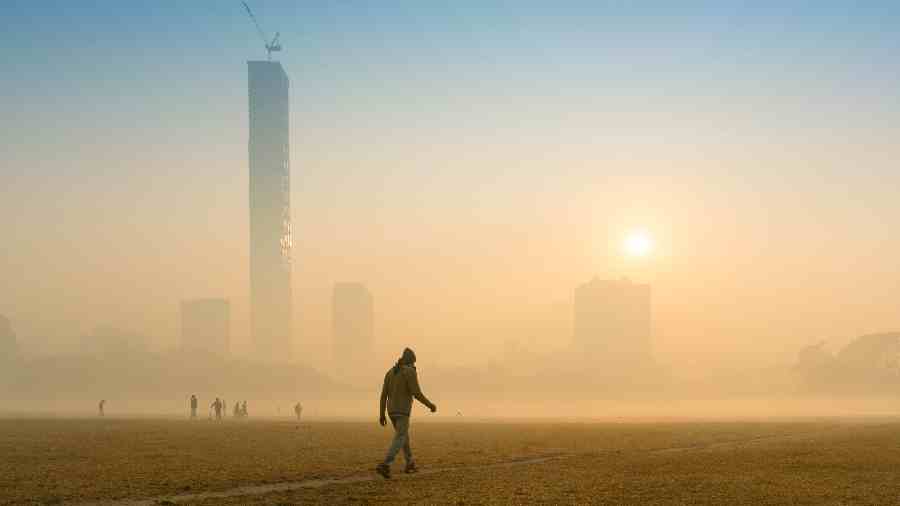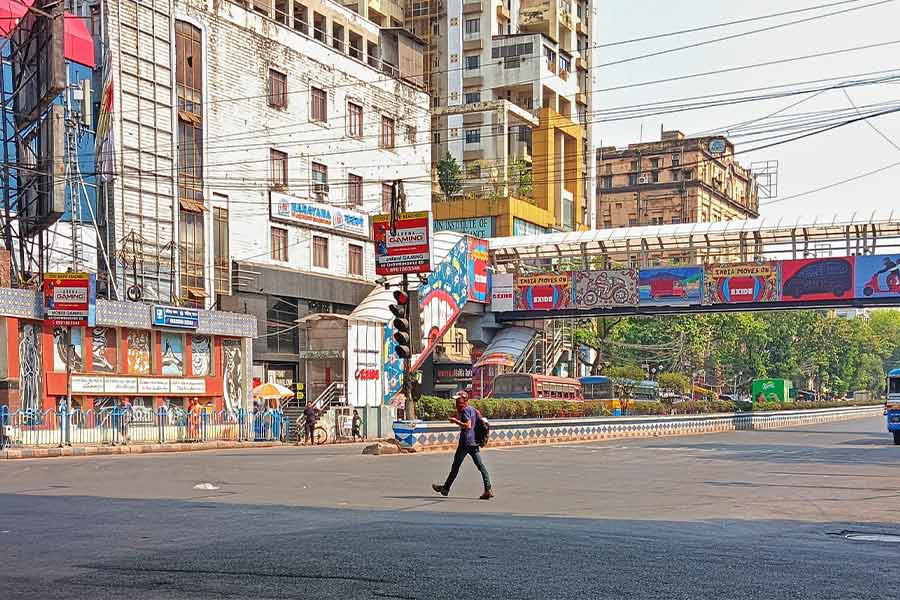Early morning walks in the cold winter months could pose a risk to your health. Today air pollution is a silent health emergency affecting all. The immediate and chronic health hazards are not recognised by many.
Inhalation of substances harmful to humans during early morning walks cannot be avoided. Air pollution can reduce lung function even in healthy young adults causing health problems.
Toxic air is no longer a problem of Delhi alone, it is a matter of concern for Kolkata, too. The International Agency for Research on Cancer (IARC) has classified outdoor air pollution and particulate matter as a Group 1 carcinogen or agent causing cancer. Although accurate forecast of weather has been of great help, there is no air pollution forecasting system.
Morning walk
Physical exercise and morning walk for 30 minutes five days a week is strongly recommended. However, inhalation of toxic substances should be avoided. During early morning the concentration of pollutants is the highest. Because of the chill, there is deterioration of the air quality and the pollutants gets trapped as the air does not rise. With bright sunshine, the air warms up and the pollutants disperse.
Ozone is beneficial in the upper atmosphere as it protects us from the sun’s ultraviolet radiation, but at the ground level it is a toxic pollutant and one of the key ingredients of smog. Persistent smog is responsible for headache, fatigue, allergies, coughing and dizziness.
During brisk walks or strenuous exercise in the open, people tend to breathe faster and inhale more pollutants. Wearing masks during strenuous exercise may further increase breathing difficulty. It is better to avoid early morning walks if there is cough, chest discomfort, breathing difficulty or fatigue. Working out at home on certain days is an option.
The phenomenal increase in the number of vehicles, diesel exhaust and burning of solid waste have further contributed to air pollution. The pandemic-induced restrictions had kept air pollution under check a year back. Morning walks were restricted.
Now, with life returning to normal, there has been an increase in the fine particulate matter and significant deterioration in the air quality. Early morning walks may not have the desired result. Dropping off children to schools by private vehicles in the early morning does increase the air pollution in that area. There is no control or measurement of the air quality in schools during early morning outdoor activities.
Air pollution
The impact of air pollution on health is phenomenal. Air Quality Index (AQI) measures the amount of pollution in the air. If the AQI is between 201 and 300, the air is considered to be poor. Such air can cause breathing difficulty to most people on prolonged exposure.
If the AQI is between 301 and 400, the air quality is considered very poor. It can trigger respiratory illness on prolonged exposure.
Of the various air pollutants, ground-level ozone, carbon monoxide, sulphur oxides, nitrogen oxides and lead are commonly implicated. Particulate matter 2.5 is considered among the commonest air pollutants which can easily enter the lungs because of its small size.
Vehicular emissions, construction, waste burning and industries are mainly responsible for particulate pollution. Air pollution can cause congestion of nose or throat, sinusitis and cough. It is also associated with chronic lung and heart diseases. Strokes have also been reported. A graded response action plan, or GRAP, is a set of emergency measures that prevent further deterioration of air quality once it reaches a threshold. Substances harmful to humans and other living organisms need to be eliminated.
Lung cancer
Although smoking and genetic factors are important causes, outdoor air pollution is today an established carcinogen. In West Bengal, lung cancer is the most common individual cancer in males (20 per cent). In females, breast cancer is the most common (24.8 per cent).
However, lung cancer is increasing among females and today it has climbed to the fifth position (6.6 per cent). There is no doubt that the number of smokers is more among males. However, lung cancers seem to be increasing among female non-smokers. This is a cause of concern. A viable strategy to reduce air pollution is mandatory.
Persistent cough with or without bleeding, breathing difficulty, chest pain, hoarseness, unexplained weight loss or a lower neck swelling are some symptoms of lung cancers.
Similar symptoms can occur in tuberculosis or other chronic infections. Early diagnosis is the key to success. Unfortunately, the diagnosis of lung cancer is usually late. More than half the cases are diagnosed at a advanced stage.
The projected incidence of new cancers likely to be diagnosed in 2025 are 60,169 in males and 61,470 among females. If both new and old cases are included, the figure should exceed 4 lakh.
Conclusion
- Be vigilant and keep track of the Air Quality Index of your area.
- Consult your physical medicine doctor whether your workout should be indoor or outdoor.
- Wear masks at all times except during brisk walks or strenuous exercise.
- Investment in shares or mutual funds may be beneficial but investment in your health should be a priority
Gautam Mukhopadhyay is secretary, Bengal Oncology Foundation, and clinical director, Surgical Oncology, Peerless Hospital, Kolkata






